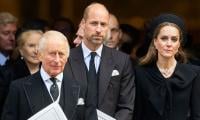Europe’s Enlightenment
The Enlightenment emerged in 18th century Europe and played an important role in changing the nature of its political, social and religious life.
Philosophers, poets, novelists, musicians and artists played an active role in transforming European society. A major problem that they faced was the domination of the Church, which controlled nearly every aspect of life. Therefore, their main motive was to liberate society from the Church and provide opportunities to create new ideas and thoughts that could guide it towards progress. They also sought to eliminate religious narrow-mindedness and sectarian hatred, which were the cornerstones for a peaceful society.
In order to understand European society in the 18th century, we have to examine the institutions that dominated it. For example, the institution of kingship was absolute and not answerable to the people. The aristocracy monopolised all high administrative jobs and served as the master of landed property. The bishops and high officials of the Church kept the people loyal to the king. The army was ready to crush any rebellion against the monarchy. Owing to these institutions, people had no space to express their opinion or play a vital role in the social fabric.
The state took strict measures to maintain this government structure. Nobody was allowed to speak or write anything against the ruling institutions. Books, magazines and newspapers that criticised government policies were censored. Those who expressed anti-state views were not permitted to hold any office and were deprived of state patronisation. In order to silence dissent, these elements were either imprisoned or exiled.
However, there were some intellectuals who devoted their energies towards altering the structure of society. Instead of changing it through a revolution or rebellion, these groups sought the help of the rulers and the aristocracy. To accomplish this task, they wanted to transform absolute monarchy and inspire the aristocracy to support them in their efforts. They were neither in favour of a democratic movement nor interested in involving people in transforming society.
In France, the group of intellectuals who challenged the existing institutions included Voltaire, Diderot and D’Alembert. Many other writers were also part of this group. They were known as the Philosophs. Since they were not against the political system, rulers and aristocrats supported and patronised them.
Another important institution in Paris was the Salon. It was supervised by aristocratic women and provided a platform for well-known writers, artists and musicians to discuss on intellectual topics freely. Visitors from other European countries also participated in these discussions.
Although there was censorship and restrictions on publications that were critical of the state, intellectuals found a way to break this system. They got their books published in neighbouring countries and then smuggled them to France. Some writers endured harsh treatment for doing this. Voltaire was first imprisoned in the Bastille and subsequently exiled from Paris. He spent the rest of his life wandering from one place to another and returned to Paris only before his death.
Another literary personality whose work was widely disseminated was Denis Diderot. He edited an encyclopaedia that included articles on nearly all aspects of knowledge. It became quite popular and its fake editions were circulated throughout Europe.
The French aristocracy patronised the efforts of the Philosophs to combat religious prejudices and outdated political and social traditions. Whenever they were in a financial crisis, the aristocracy helped them to continue their work. Madame Pompadour, the mistress of Louis XV (1643-1715), and other liberal women maintained friendly relations with intellectuals and helped them whenever they were in political or financial trouble.
The efforts of French thinkers and philosophers were appreciated by two rulers: Fredrick of Prussia and Catharine the Great. Fredrick of Prussia took a keen interest in literature, philosophy and music. Catharine the Great corresponded with Voltaire, Diderot and other writers and encouraged them to continue their mission without any interruption. She invited Diderot to Russia and welcomed him warmly.
The main motive of the Philosophs was to alter the character of absolute monarchy and foster enlightened and liberal rulers. Similarly, they were also keen to transform the aristocracy. With the help of the monarchy and the aristocracy, the Philosophs sought to introduce reforms from above. Despite their efforts and support from Frederick of Prussia and Catherine the Great, they failed to change the character of these institutions. Both Frederick of Prussia and Catherine the Great followed a policy of war against their neighbours and did not introduce any reforms to improve the condition of their people.
Though Voltaire was invited as Fredrick of Prussia’s guest, their relationship eventually turned sour and Voltaire left his host without receiving a farewell. Voltaire praised Catharine the Great for fighting against the Turks and saving Europe from an Ottoman invasion. Regardless of these matters, the work of these writers influenced the educated middle classes who went on to actively participate in revolutionary activities.
Another contemporary philosopher of the Philosophs was Rousseau. He was against the Enlightenment and had different views about the origins of civilisation. In his view, civilisation was a curse, not a blessing for humans. He believed that sovereignty should belong to the people. Rousseau lived in poverty and died penniless. His reputation was resurrected during the French Revolution when he was posthumously honoured and his body was reburied at the Pantheon.
The writer is a veteran historian and scholar.
-
 Sterling K. Brown's Wife Reveals If She Gets 'Paradise' Spoilers
Sterling K. Brown's Wife Reveals If She Gets 'Paradise' Spoilers -
 Rape Suspect Flees Aboard After Mistaken Prison Release
Rape Suspect Flees Aboard After Mistaken Prison Release -
 Jack Hughes' Patriotic Words Spark Calls For Tate McRae To Dump Her Boyfriend
Jack Hughes' Patriotic Words Spark Calls For Tate McRae To Dump Her Boyfriend -
 Andrew Pushes For Major Deal With King Charles To Avoid Jail
Andrew Pushes For Major Deal With King Charles To Avoid Jail -
 50 Cent Online Trolling Tactic Exposed As He Targets Rival Rappers' Mothers In Rap Beefs
50 Cent Online Trolling Tactic Exposed As He Targets Rival Rappers' Mothers In Rap Beefs -
 King Charles Attends 'series Of Meetings' Amid Growing Calls For His Abdication
King Charles Attends 'series Of Meetings' Amid Growing Calls For His Abdication -
 Prince William’s Visible Anxiety At Key Event Reveals Fears For King Charles’ Health
Prince William’s Visible Anxiety At Key Event Reveals Fears For King Charles’ Health -
 Channing Tatum Celebrates Hunter Theunis Botha's Death
Channing Tatum Celebrates Hunter Theunis Botha's Death -
 'Spider-Man: Brand New Day' Director Reveals What Fans Can Expect From The Movie
'Spider-Man: Brand New Day' Director Reveals What Fans Can Expect From The Movie -
 US Government To Cease Collecting Tariffs After Supreme Court Ruling
US Government To Cease Collecting Tariffs After Supreme Court Ruling -
 King Charles Finally Receives Good News About Reunion With Lilibet, Archie As Harry And Meghan Reach Agreement
King Charles Finally Receives Good News About Reunion With Lilibet, Archie As Harry And Meghan Reach Agreement -
 'House Of The Dragon' Season Three Promises Total Chaos As 'A Knight Of The Seven Kingdoms' Final Episode Drops
'House Of The Dragon' Season Three Promises Total Chaos As 'A Knight Of The Seven Kingdoms' Final Episode Drops -
 ‘Global Human Rights Are Under Attack,’ UN Chief Antonio Guterres Issues Stark Warning
‘Global Human Rights Are Under Attack,’ UN Chief Antonio Guterres Issues Stark Warning -
 Demi Lovato Bravely Admits She Is ‘not Ashamed’ Of Having Bipolar Disorder
Demi Lovato Bravely Admits She Is ‘not Ashamed’ Of Having Bipolar Disorder -
 Can Humans Reverse Aging? Harvard Scientist Predict Revolutionary Breakthrough
Can Humans Reverse Aging? Harvard Scientist Predict Revolutionary Breakthrough -
 How Liam Payne’s Death Impacted Awareness About Mental Health
How Liam Payne’s Death Impacted Awareness About Mental Health



